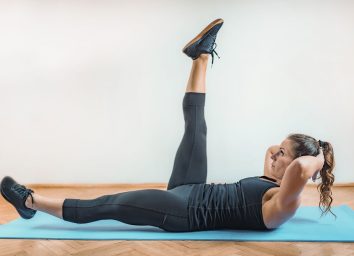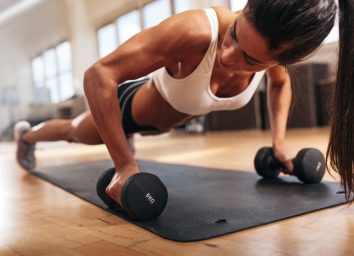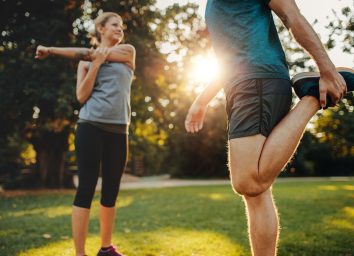14 Best Foods for Better Workout Results, According to Experts
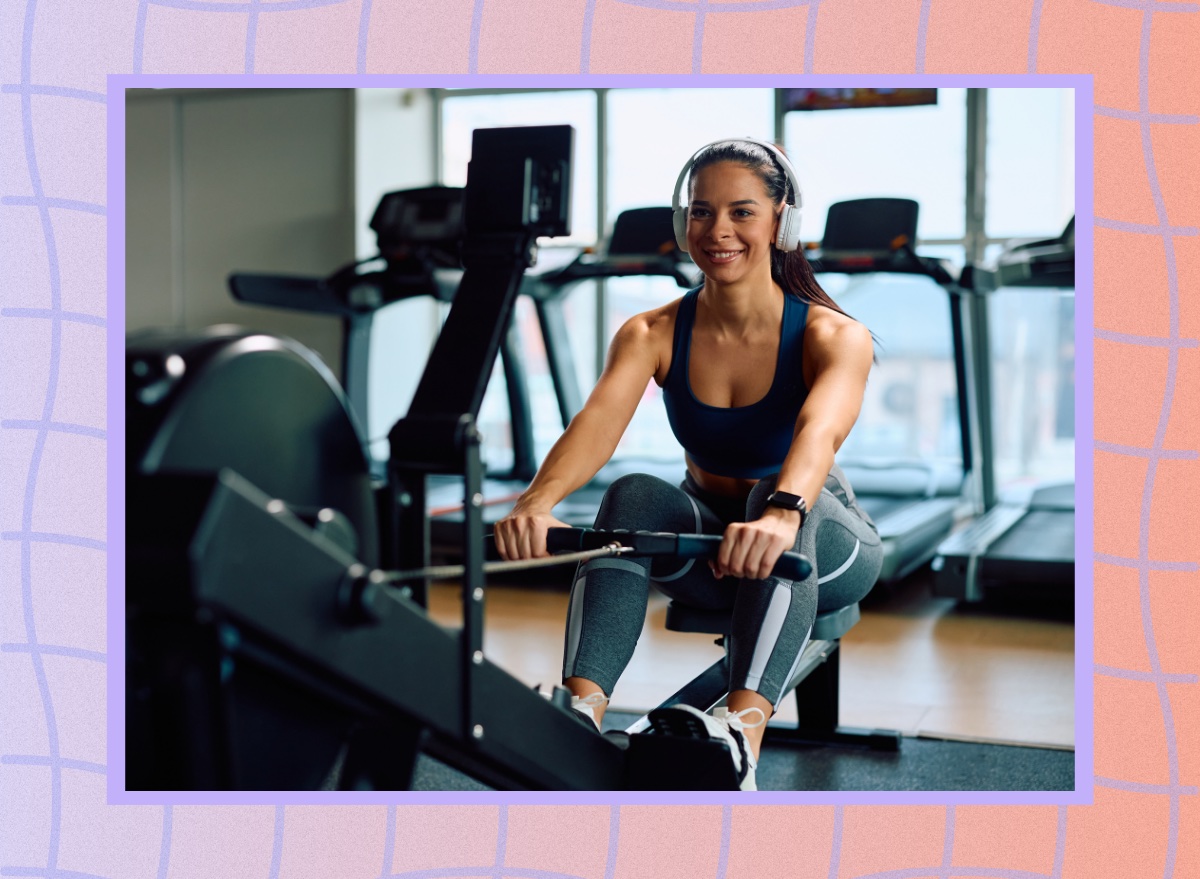
If you're going to set aside precious time out of your day to get exercise, wouldn't you want to make the most out of it?
Whether you're looking to strengthen your muscles, lose weight through exercise, improve stamina and endurance, or just stay healthy, what's perhaps even more important than working out to reach your goals is nourishing your body with foods that can amplify your results.
"Once your workout is over the body will begin rebuilding glycogen stores and restoring muscle protein to regrow the muscles. Knowing this, the nutrients you take in post-workout can be just as important as the workout itself," says Trista Best, MPH, RD, LD, a registered dietitian for Balance One Supplements.
There are certain foods with unique benefits that specifically support workout results, but keep in mind that if eaten in isolation without following a healthy diet, your results won't be as great as you'd like them to be.
"There are a lot of foods that you should be eating in order to improve your health, increase your stamina, and maintain optimal functioning. You can't just eat one healthy meal, or food, and think you're going to lose weight," says Jay Cowin, NNCP, RNT, RNC, CHN, CSNA, ASYSTEM's Registered Nutritionist and Director of Formulations.
So get more out of your workouts with the help of these healthy foods that dietitians, doctors, and trainers say boost performance and amplify exercise results.
Read on, and for more on healthy eating, don't miss 7 Healthiest Foods to Eat Right Now.
Tart cherry juice

"Tart cherry juice can reduce muscle soreness and help athletes to bounce back faster after tough workouts, thanks to its high levels of polyphenols that are packed with powerful antioxidants and anti-inflammatory compounds. The benefits have been shown after both strength exercise and endurance exercise," say The Nutrition Twins, Lyssie Lakatos, RDN, CDN, CFT and Tammy Lakatos Shames, RDN, CDN, CFT, authors of The Nutrition Twins' Veggie Cure.
To reap the benefits of tart cherry juice, Lyssie and Tammy recommend either drinking it plain or mix it into smoothies with a banana, ice, and Greek yogurt.
Fatty Fish

"Most athletes and active people understand the importance of protein for muscular growth and recovery, but consuming adequate fat is essential for maintaining healthy hormone levels. A study of endurance athletes found that fat intake was the major distinguishing factor between healthy female runners and those with menstrual dysfunction. Research has also linked low-fat diets with a decrease in testosterone levels in men. Consume a wide variety of lean protein sources, but don't be hesitant to add some nourishing fatty fish, such as salmon, mackerel, herring, into your diet as well for optimal performance," says Angie Asche, MS, RD, CSSD owner of Eleat Sports Nutrition, and author of Fuel Your Body: How to Cook and Eat for Peak Performance: 77 Simple, Nutritious, Whole-Food Recipes for Every Athlete. (So, basically, a cookbook that will help you put all of the foods on this list on your plate in delicious ways!)
To reap the same benefits sans fish, you can also grab a handful of almonds. These nuts also have the added benefits of being a good source of magnesium, a mineral that has been linked to reduced muscle soreness.
Olives
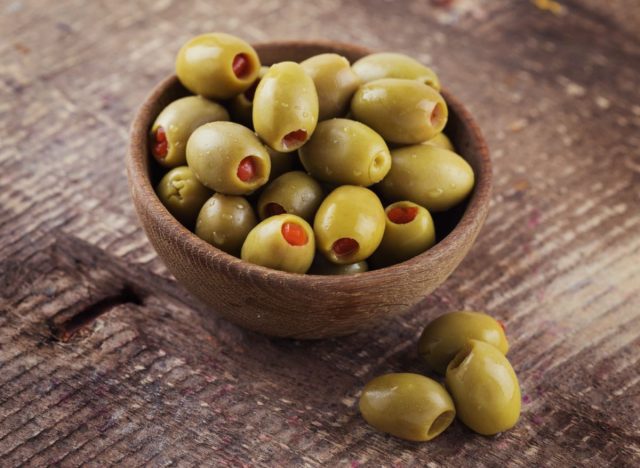
Introducing the most unexpected food to improve exercise results of all time: olives. "Olives are high in fat and very low in carbs, which make them a good keto-friendly pre-workout snack for promoting endurance potential. Training in a low-carb state can, over time, can help the body to burn more fat during workouts, therefore reducing our reliance on sugar for our workout and making us more metabolically flexible," says Casey Means, MD, who is the co-founder and Chief Medical Officer of metabolic health company Levels, and associate editor of the International Journal of Disease Reversal and Prevention.
"Athletes who train in a low-carb state have been shown to preferentially use fat over carbohydrates for long, moderate-intensity workouts (65% VO2 max), in contrast to athletes who consume high carbohydrate diets. Ever bonked before? This may be a sign that you're very reliant on glucose during workouts, and might benefit from working towards improved metabolic fitness so you can tap into fat for fuel. Skip the high sugar shakes, goos, banana, or protein bars that might be giving you a huge glucose and insulin spike (and subsequent crash) before your workout, and blocking fat burning in turn," Dr. Means adds.
Tomatoes

"Tomatoes and tomato juice may deliver a little TLC to your muscles, resulting in quicker muscle recovery. One study showed that tomato juice significantly reduced markers for muscle damage. Ideal for hydrating, tomatoes also packs water and potassium, which helps replenish the electrolytes you lose while sweating. Plus, they're packed with antioxidants, like lycopene, that may be responsible for hastening muscle recovery by reducing inflammation," say Lyssie and Tammy.
Beet Juice
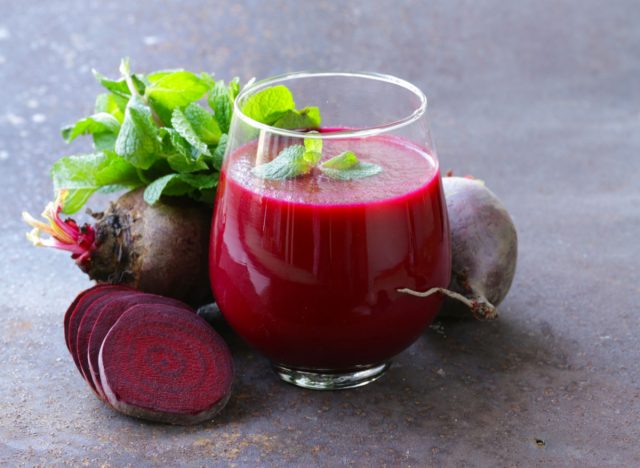
"Beets are a top dietary source of nitrates which convert to nitric oxide in the body. This in turn helps to dilate blood vessels which increases blood flow and delivery of oxygen and nutrients to muscle cells. Studies have shown beets may improve endurance performance, muscular power and strength, and even cognition during team sports," says sports dietitian Kelly Jones, MS, RD, CSSD, LDN.
Watermelon
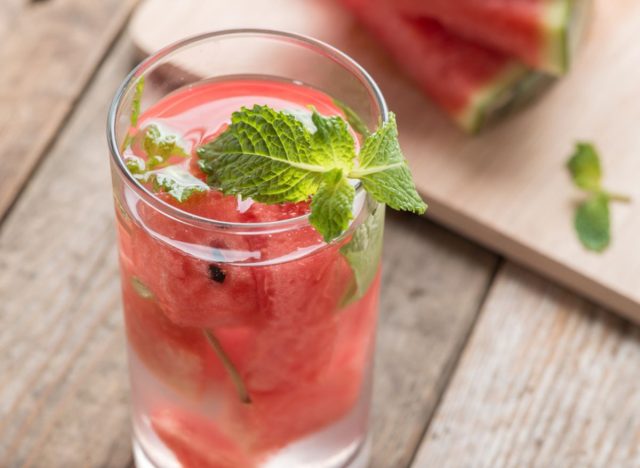
"Watermelon juice may help muscles to repair after a tough sweat session. Watermelon is a good source of the amino acid, l-Citrulline, which has been thought to reduce muscle soreness. One study found that watermelon juice helped to decrease muscle soreness and reduce recovery heart after a 24-hour period. You can add watermelon to salads, add watermelon to nut butter sandwiches, smoothies or add it to muesli," say The Nutrition Twins. (Related: Here's What Happens To Your Body When You Eat Watermelon Every Day)
Oatmeal
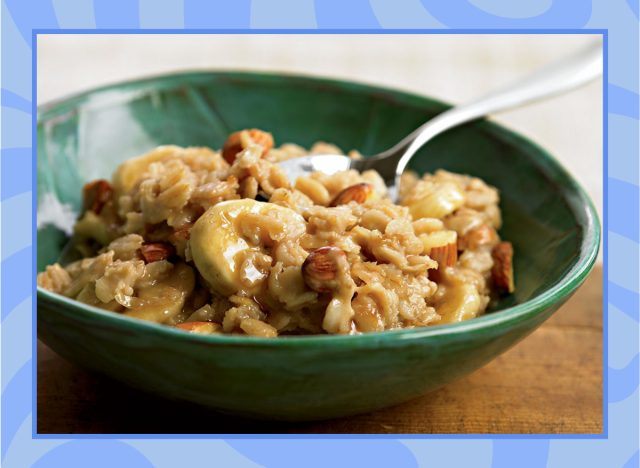
If you're exercising for weight loss, National Academy of Sports Medicine certified personal trainer and fitness nutritionist Brandon Nicholas, CPT of The Fitness Tribe recommends eating oatmeal. "A bowl of oatmeal for breakfast offers low-calorie satiety which spikes your energy levels and provides an hours-long supply of fuel for prolonged optimal physical performance. It's also packed with stress-fighting and immunity-boosting zinc. All of these help promote weight loss and prevent heart diseases by preventing you from experiencing greater food intake," he says. For more, check out Surprising Side Effects of Eating Oatmeal, According to Science.
Blueberries
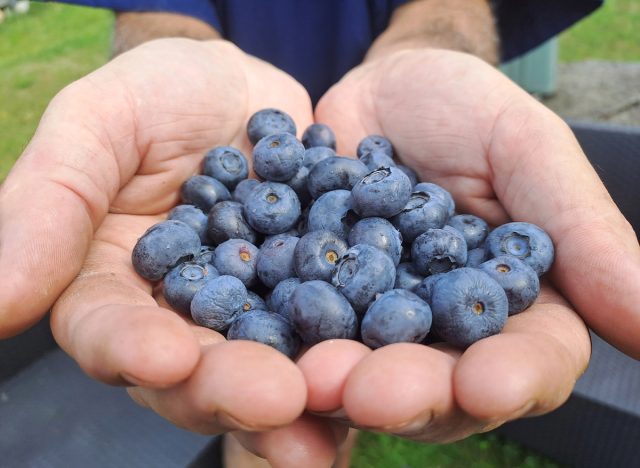
When it comes to improving your general health through exercise, add blueberries to your grocery list "Despite all fruits having their own set of nutrients that benefit your health, blueberries are debatable the best of them all. They offer fiber, vitamins, and minerals that are far greater per ounce than any other fruit. The superior among those nutrients are free-radical-fighting antioxidants. Antioxidants help keep connections between cells in the brain and the nervous system, ensuring healthy cognitive functioning; they also prevent diseases, premature aging, and stress," says Nicholas.
Lean meats
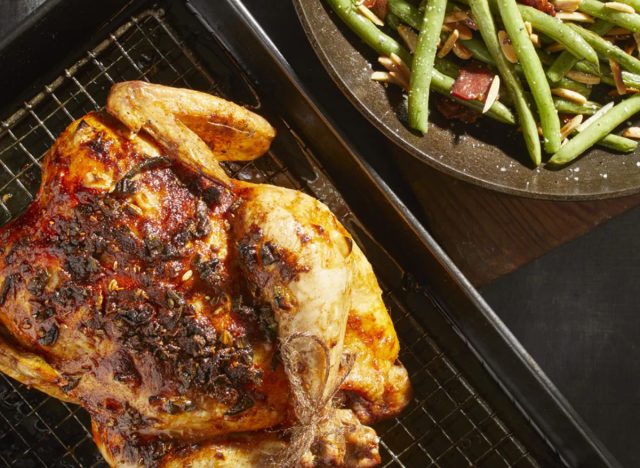
For muscle strengthening and stamina, stock up on lean meats. As most of us know, protein is essential to maintain or grow muscle mass when training. Emily Servante, CPT, a certified personal trainer at Ultimate Performance tells us that not just any protein will do: "Not all protein is the same when it comes to stimulating muscle protein synthesis (the process of repairing and building lean muscle tissue)," Servante says, noting that the protein quality, content, and amino acid profile are important.
"The singular most important amino acid for regulating muscle protein synthesis is a branched-chain amino acid (BCAA) called leucine. Leucine acts as the 'initiator' of muscle protein synthesis and we need to hit a certain threshold (20-40 grams of protein) in a meal to trigger it." Chicken and beef contain the highest amount of leucine per portion, she says, explaining that one chicken leg contains 5,160 milligrams of leucine and beef contains 5,007 milligrams per 6-ounce steak.
To optimize your leucine intake even more (and if you're vegetarian), you can opt for a leucine supplement, such as Amplify. Servante notes that leucine supplements shouldn't contain the amino acids isoleucine and valine, as they compete with leucine for absorption.
Matcha
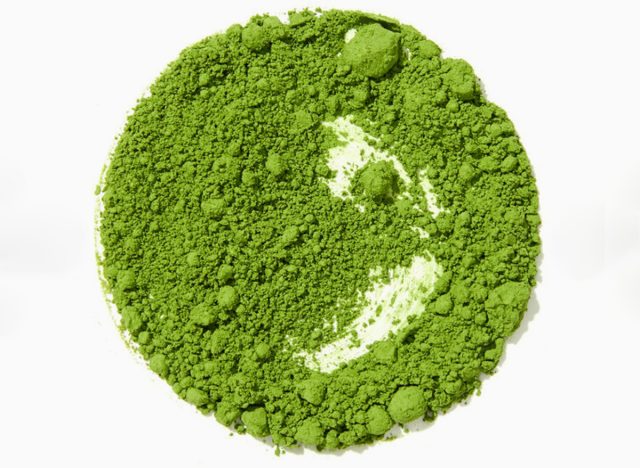
Sip your way to better workout results. "Matcha is extremely high in antioxidants that fight free radicals which contribute to cellular DNA damage. [The green tea] also has a thermogenic effect that increases your body's rate of calorie burn, so matcha before a workout can increase the overall effectiveness of the workout in helping you get to your fitness goals if dropping unwanted pounds is part of it for you. It also increases your brain's ability to concentrate and handle stress, which boosts your mood," says ACE-certified Fitness Expert and AND/life app creator, Andrea Marcellus, CPT. Green tea is one of our favorite drinks. And it does much more than support exercise performance: 7 Amazing Benefits of Drinking Green Tea.
Avocados
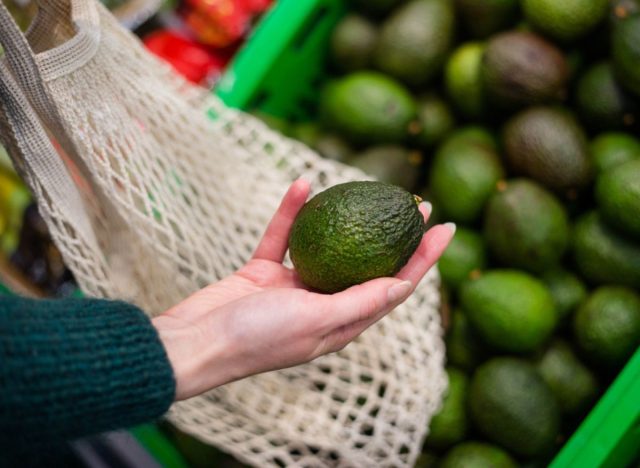
"Avocados are the superfood of all superfoods. It has more potassium than bananas, making it an excellent post-workout snack," says Marcellus. She notes that the fatty fruit comes with additional health benefits beyond improving workout results, such as improving heart health, supporting digestion, boosting your mood, and managing blood pressure. We go into more details in What Happens to Your Body When You Eat an Avocado.
Cottage cheese

"Protein is important for recovery after any type of workout, to help build and maintain skeletal muscle, which burns more calories than fat. My go-to source of protein is cottage cheese, which is often overlooked but is super convenient and delicious," says Elizabeth Ward, RD. Hood Cottage Cheese, for example, packs up to 13 grams of protein in just 1/2 cup. "[Cottage cheese] is an ideal delicious post-workout way to get the protein you need," Ward says. For some ideas on how to eat eat, check out these 18 Clever Ways to Eat Cottage Cheese.
Carb + Protein Snack
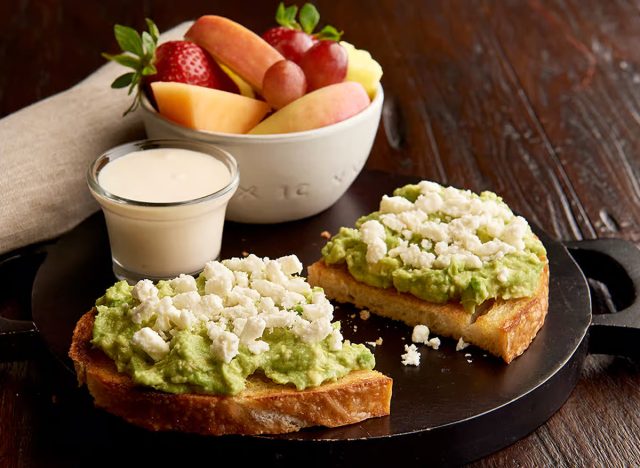
"When it comes to working out and post-workout snacks it is personal! Depending on the workout you did, your nutrition will vary in what works best for you. Typically though I like to recommend a 3 gram:1 gram ratio of carbs to protein (ex. 15 grams of carbs to 5 grams of protein) to improve results and help with recovery," recommends Elizabeth Beil, RD, a Registered Dietitian with a virtual private practice, Elizabeth Beil Nutrition. One example she recommends is 1 scoop of protein powder mixed with 1 cup of milk of your choice.
Nothing
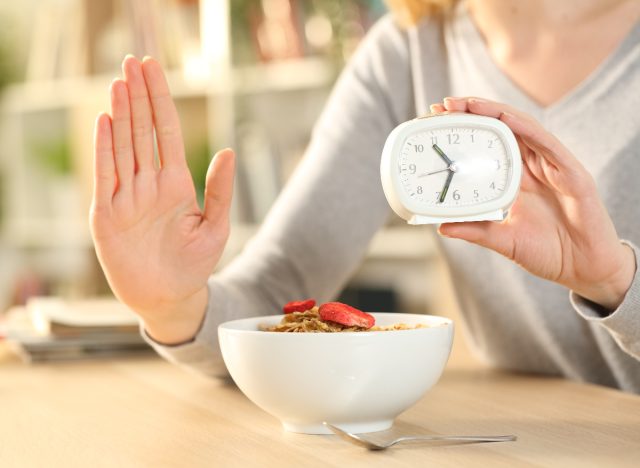
"Eat nothing: Yep, you read that right. Recent research supports that exercising in a fasted state—such as first thing in the morning, before consuming any calories—increases acute insulin sensitivity and glucose uptake by muscle fibers, and may induce long-term positive health changes. The idea is that when you workout fasted, it will force the body to be more efficient at taking up sugar from the blood, as well as burning fat for energy. Another recent study showed that fasted workouts improved the metabolic health in obese men. If you're used to eating before workouts, take it slow and talk to your doctor before jumping into a fasted regimen; the body takes time to adapt," shares Dr. Means.
And before your next workout, read up on these 6 Exercise Mistakes That Prevent Weight Loss, According to Experts.
